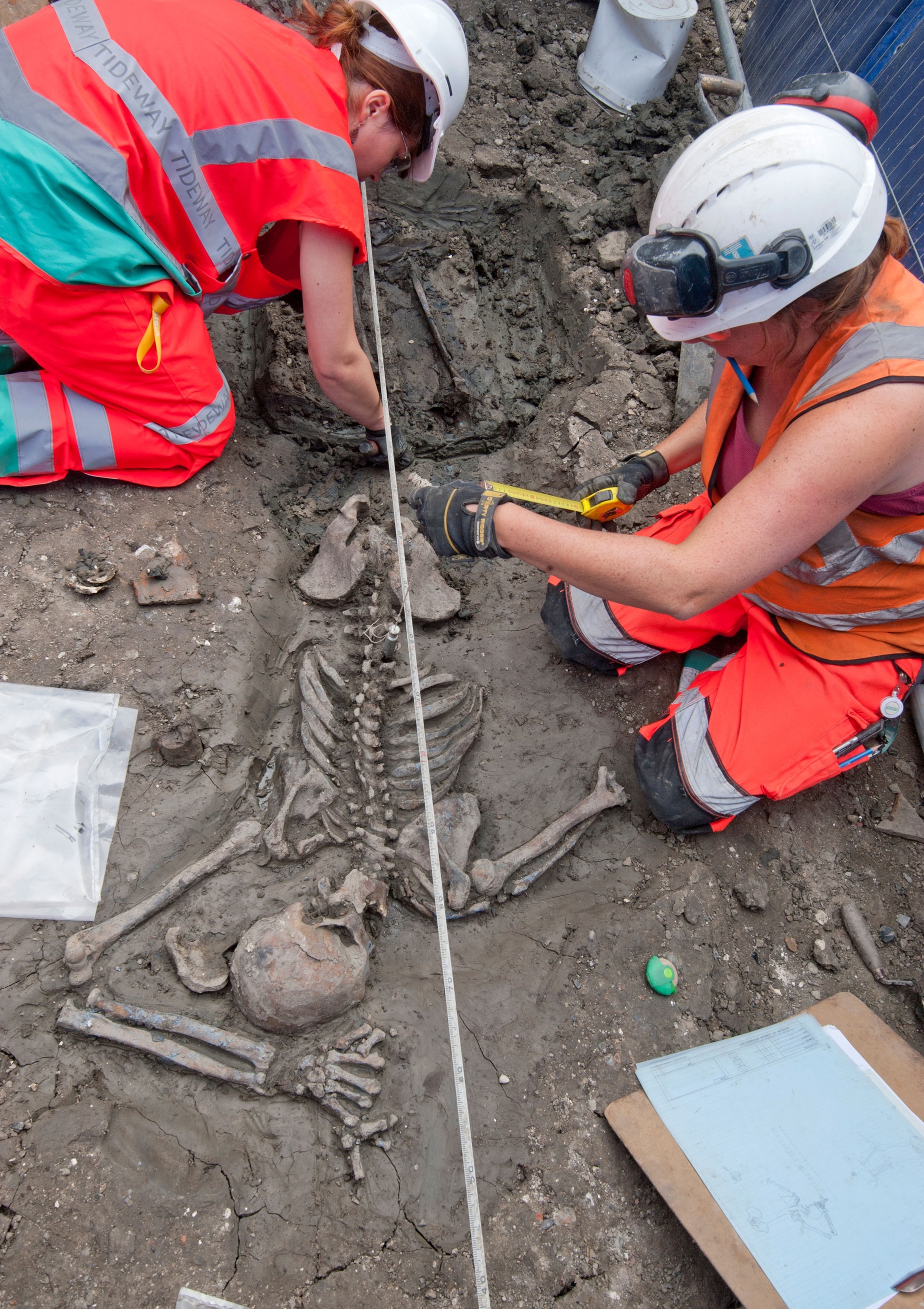The discovery of a 500-year-old skeleton wearing thigh-high leather boots along the banks of the River Thames in London has piqued the interest of archaeologists and historians alike. This remarkable find not only provides a glimpse into the past but also sheds light on the fashion and daily lives of individuals during the Tudor era in England. As the construction of a new “super sewer” unearths this captivating piece of history, it offers a unique opportunity to explore the intricacies of life centuries ago.
The Remarkable Discovery

In the Bermondsey neighborhood of South London, archaeologists working on the city’s $5.4 billion “super sewer” project made a remarkable discovery – the skeleton of a man believed to date back 500 years, found face-down in the muddy banks of the River Thames. What set this discovery apart was the fact that the skeleton was found wearing thigh-high leather boots, a highly unusual and valuable item during the Tudor era.
The Significance of Leather
According to the MOLA Headland Infrastructure team, the company overseeing the sewer construction project, leather was a highly coveted material during the 15th and 16th centuries in England. The discovery of the well-preserved leather boots on the skeleton suggests that this individual’s death was likely an accident, as it would have been highly unlikely for a corpse to be buried with such a valuable item.
The Boots and Their Implications

The shape and style of the leather boots found on the skeleton have also intrigued the archaeologists. Beth Richardson, a finds specialist for the MOLA team, explains that high boots were not a common sight during the Tudor period, with most people wearing either shoes or ankle boots. This observation led the team to believe that the individual may have been a fisherman, a dock worker, or perhaps a sailor, as these boots would have been more practical for such physically demanding occupations.
The Man Behind the Boots

Further analysis of the skeleton revealed that the individual had extensive degenerative joint disease along his spine and left hip joint, suggesting he was engaged in significant physical labor throughout his life. Osteologist Niamh Carty estimates that the man was likely older than 35 at the time of his death, although the exact cause of his demise remains a mystery.
Conclusion
The discovery of the 500-year-old skeleton wearing thigh-high leather boots along the River Thames in London is a remarkable testament to the enduring power of history. This find not only provides a tangible connection to the past but also offers a unique opportunity to learn more about the daily lives and material culture of individuals during the Tudor era. As the construction of the “super sewer” continues, the ongoing investigation into this captivating discovery promises to shed even more light on the stories that lie hidden beneath the surface of modern-day London.